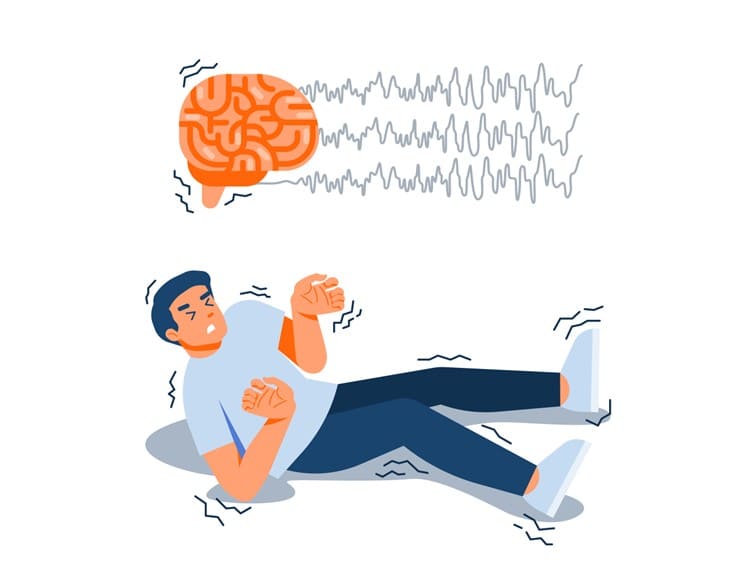
Epilepsy
Epilepsy is a nervous disorder characterised by unusual nervous activity in the brain, which can lead to seizures unconsciousness and in the event that treatment is not received a progressive recurrence over time. Epilepsy is the world's fourth most prevalent neurological disorder. Epilepsy sufferers may experience recurrent seizures due to spikes in brain activity. We can assist you in learning all there is to know about epilepsy and your options for managing it.
Overview
Following an epileptic episode, a person may experience acute exhaustion, stiffness, falls, rapid blinking, excessive jerking of the body, and difficulty speaking. Depending on the presentation, it can be of several types. The primary causative factors are genetic alterations, brain traumas, and central nervous system infections, which are followed by hypoxia, drug addiction, and strokes. Treating epilepsy effectively is essential to managing and reducing these seizures.
Causes
Many conditions that disrupt normal brain activity, known as "co-occurring conditions," can cause epilepsy. People may stop having seizures after receiving treatment for these conditions. However, whether or not the seizures stop depends on the type of disorder, the affected brain region and the amount of brain damage that occurred before treatment. The following are some conditions that can cause epilepsy:
Tumours of the brain
Trauma to the head
Alcoholism or withdrawal symptoms
Alzheimer's disease
Strokes, heart attacks, and other oxygen-deprivation conditions
Brain bleeding or abnormal blood vessel formation (called arteriovenous malformations)
Inflammation or swelling of the brain
Viral infections, such as Meningitis and Encephalitis, People with autism spectrum disorder or intellectual disabilities are frequently diagnosed with epilepsy along with other brain development disorders.
Symptoms
Seizures can have various effects on people depending on which part of the brain is involved. Among the possible symptoms are:
Erratic jerking and shaking are referred to as a "fit"
Losing consciousness and staring off into space
Stiffening strange sensations like a "rising" feeling in your stomach
Strange tastes or smells, or a tingling sensation in your arms or legs collapsing.
Occasionally, you may faint and lose memory of the event.
Ayurvedic View
Apasmara - due to three dosha mainly vata, pitta and kapha prakopa (aggravation) with involvement of mansika karana like excess grief, sadness, anger, etc, reaches mano vaha srotas (mind channel, brain, cerebral nerves) and affects the proper functioning of mind or brain regarding thoughts, behaviour, along with akshepaka (seizure), etc, this is epilepsy. The Ayurveda way of approach is to correct the imbalance of dosha by following adidaivika (chanting), adibhautika (medicine ) ways, reduce the symptoms by ayurvedic panchakarma treatment and local treatment for brain and mind, which will help in reducing overexcitation of nerves (vata dosha).
Epilepsy
Treatment for
DISCLAIMER: Listed treatment details are only for information purposes. Treatments and duration may vary depending on numerous factors. Treatments for your condition may not be limited to this list.






















